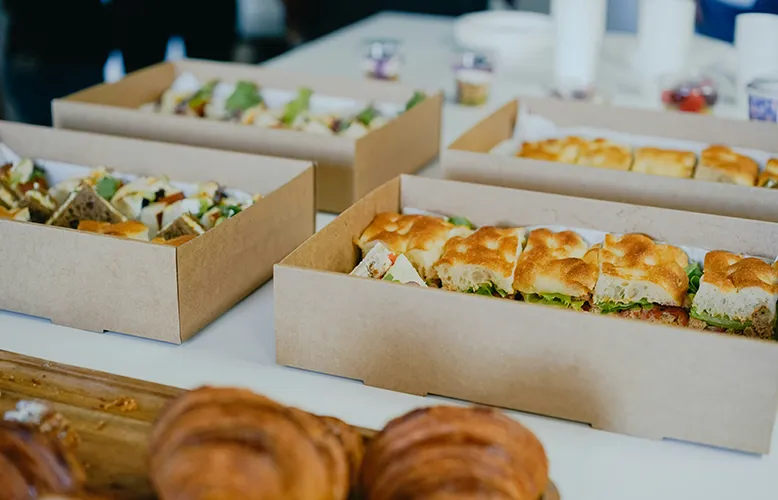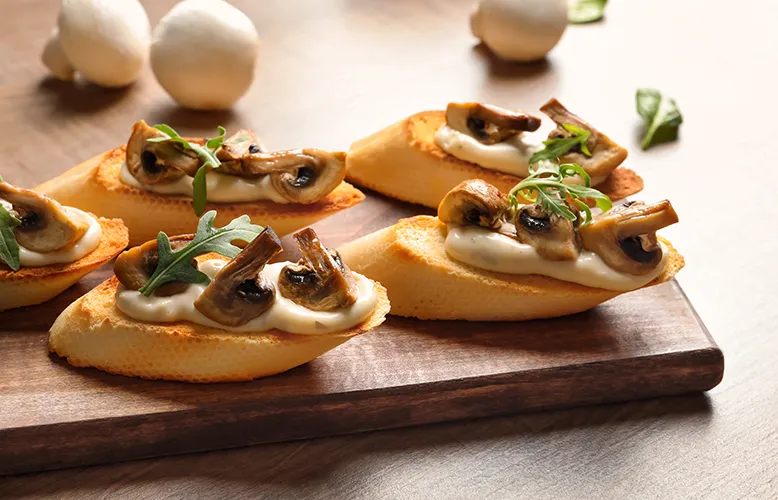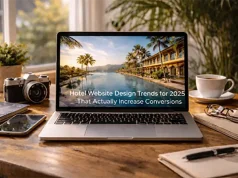Corporate events come in many forms, such as board meetings, training sessions, conferences, or client receptions, but one element always stands out: the food. Catering is more than a meal; it’s an opportunity to reflect professionalism, create memorable experiences, and ensure attendees feel cared for. Poor catering can derail even the most well-planned event, while thoughtful catering contributes to productivity, networking, and satisfaction. Planning seamless catering requires attention to detail, communication, and foresight to match the expectations of both the company and its guests.

Choosing the Right Catering Partner
Selecting a catering provider is the first and most critical decision in the planning process. Companies that offer expert catering nationwide provide flexibility and consistency, which is valuable for businesses that host events across multiple locations. A trusted partner should handle logistics and adapt menus to align with the event’s goals, whether casual working lunches or formal dinners.
When evaluating potential providers, organizers should consider factors like food quality, presentation, responsiveness, and reputation. Seeking referrals, reading reviews, and conducting tasting sessions help ensure the provider’s offerings meet expectations. Just as importantly, an experienced catering team will anticipate potential challenges and provide solutions, such as offering menu variations for dietary restrictions or adjusting serving styles to match event flow.
Matching Menus to Event Type
Different corporate gatherings require different catering approaches. A morning seminar may call for light breakfast options such as pastries, fruit, and coffee, while an afternoon training session may benefit from buffet-style meals that allow participants to choose their portions. For formal receptions or networking events, hors d’oeuvres and small plates encourage mingling while maintaining a professional tone.
The key is aligning food and beverage options with the purpose of the event. A strategy session might need energizing, health-conscious meals to keep participants alert, whereas a client gala may require more indulgent dishes and elegant presentation. Planners should work closely with caterers to curate menus that balance taste, nutrition, and style, ensuring every dish contributes to the atmosphere.
Considering Dietary Needs and Preferences
Ignoring dietary needs risks alienating attendees and undermining the professionalism of the event. Organizers should anticipate common requirements such as vegetarian, vegan, gluten-free, halal, and allergy-sensitive options. Clear labeling and transparent ingredient lists help guests make informed choices without feeling singled out.
Building flexibility into the menu enhances attendee comfort. Offering a variety of proteins, vegetables, and grains allows individuals to create meals that suit their preferences while reducing food waste. Inclusive catering communicates respect for all participants and ensures that everyone feels considered.
Timing and Flow of Service
The timing of meals and the flow of service can significantly influence the success of a corporate gathering. Meals should align with the event agenda, avoiding long waits that disrupt schedules or create frustration. For shorter events, quick grab-and-go setups work best, while multi-day conferences benefit from scheduled breaks and more substantial meals.
Service style affects the atmosphere. Buffet lines encourage networking and movement, while plated service provides formality and structure. Cocktail-style service with passed trays of hors d’oeuvres works well for receptions where mingling is the priority. Choosing the right style ensures that the food complements the event rather than distracting from it.
Logistics and Venue Considerations
Catering logistics often determine whether the event feels seamless or disorganized. Venue facilities, such as kitchen access, storage, and serving areas, must be factored into the catering plan. Some venues may limit outside food providers or require specific certifications, so early coordination is critical.
Organizers should consider room layout when planning catering. Placement of buffet tables, beverage stations, or dessert displays can either facilitate smooth traffic or create bottlenecks. Coordinating with caterers and venue staff ahead of time prevents last-minute challenges and ensures guests enjoy a smooth dining experience.
Presentation and Branding Opportunities
Corporate events are an extension of a company’s brand, and catering provides opportunities to reinforce that identity. Food presentation should reflect the tone of the event, elegant plating for formal dinners, eco-friendly packaging for sustainability-focused meetings, or branded napkins and signage for client-facing gatherings.
Some companies even incorporate brand colors into desserts or use food stations as interactive elements that engage attendees. A presentation that reflects company values enhances memorability and strengthens the message organizers aim to communicate.
Preparing for the Unexpected
Even the most meticulous plans can face disruptions, from delivery delays to last-minute dietary requests. Building contingency plans ensures these challenges don’t derail the event. Experienced caterers can provide backup options, such as extra meals, flexible serving equipment, or on-call staff to address unexpected issues.
Communication is key, event organizers should maintain constant contact with catering partners before and during the event. By anticipating potential challenges, teams can resolve issues quickly and maintain a polished experience for attendees.

Catering plays a central role in the success of corporate gatherings. By choosing reliable partners, matching menus to event goals, accommodating dietary needs, and planning for smooth logistics, organizers can deliver meals that elevate the entire experience.
Seamless catering is about more than feeding attendees; it’s about creating moments of comfort, connection, and professionalism that leave a lasting impression. With thoughtful planning and the right partners, catering transforms from a background detail into a defining feature of corporate success.





